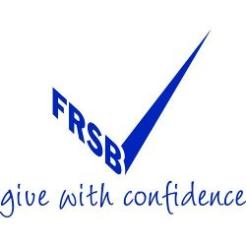Charities reported 48,432 complaints to the Fundraising Standards Board in 2013 – a 44 per cent increase on the previous year.
The FRSB Complaints Report 2014, published today, shows the majority of the complaints were about direct mail, telephone and doorstep, and came from a total of 20bn fundraising ‘asks’, up from 13.2bn in 2012.
The figures are based on complaints received by 1,203 FRSB member charities in 2013, which raise a total of £4.6bn in voluntary income annually. The number of charities reporting complaints increased 13 per cent between 2012 and 2013.
Complaints about clothing collection bags rose sharply in 2013, nearly trebling to 5,699, while the number of bags distributed fell by 45 per cent, making it the fourth most complained about technique, the report shows.
The report says just one charity, which is not named, is responsible for 72 per cent of all complaints with most relating to bags not being picked up.
The overall spike in complaints was due to a small group of major charities, with the biggest organisations, with incomes of more than £10m, reporting an average of 515 complaints, compared to the smallest reporting just one, the report says.
Charities new to the FRSB reported 5,834 complaints between them, with the majority coming from just two organisations. Eight in ten of these related to direct mail, it says.
Doorstep complaints up, street down
Last year’s report showed complaints about door-to-door fundraising had increased 93 per cent on 2011 levels to 5,555.
In 2012 it took 1,573 ‘asks’ to generate one complaint.
The latest report shows doorstep complaints continued to rise in 2013 and were up 27 per cent to 7,041, with total volume increasing only slightly to 44.3m. The number of asks taken to generate a complaints is down to 1,395.
Although the volume of ‘asks’ for 2011 is unknown, there were 43.6m door knocks in 2012, up from 31.3m in 2010.
The FRSB asked members about cause of complaints about doorstep; 42 per cent of all concerns were about the behaviour of doorstep fundraisers, 1,488 were about a general dislike of the method and 12 per cent were about the timing of visits, the report shows.
Complaints about street fundraising fell 10 per cent to 739 in 2013, with volume of ‘asks’ down by 13 per cent. Two unnamed charities were responsible for 42 per cent of all street complaints.
Telephone generates most complaints per ask
According to the report, telephone fundraising takes the least number of asks to generate a complaint at 923.
Telephone accounts for 17 per cent of all complaints and is the second most complained about technique, attracting 8,019 in 2013.
Charities told the FRSB that the tone/content of the call and dislike of the method were the most common causes for complaint.
The report shows 36 per cent of complaints about telephone fundraising related to a general dislike of the method in 2013, which is up from just 10 per cent in 2011.
Direct mail most complained about method
Complaints about both addressed and unaddressed mail rose 38 per cent to 18,226 in 2013, with a 57 per cent increase in volume to 444m mailings over the same period. The majority of complaints, 93 per cent, are about addressed mailings.
The report says three charities were responsible for four in ten of all addressed mail complaints and just one charity reported more than half of complaints about unaddressed mailings.
Colin Lloyd, chair of the FRSB, said: “Although a large majority of charities don’t receive any complaints, a small minority of organisations that deliver high volume campaigns are generating the bulk of all concerns. These charities appeal to millions of people with their work and, when something goes wrong, complaint levels can escalate quickly. As such, they carry great responsibility for maintaining the highest standards in their work to preserve and protect public trust in charitable giving.”
Peter Lewis, chief executive of the Institute of Fundraising, said: “We should recognise, as government and the FRSB does, that the overall picture is a positive one, with very few complaints compared to the volume of asks, and charities dealing with those complaints very well.
“That does not mean that we are complacent. We will review trends at the IoF Standards Committee to make sure that we reflect public concerns, and work to ensure even greater public confidence in our work.”









